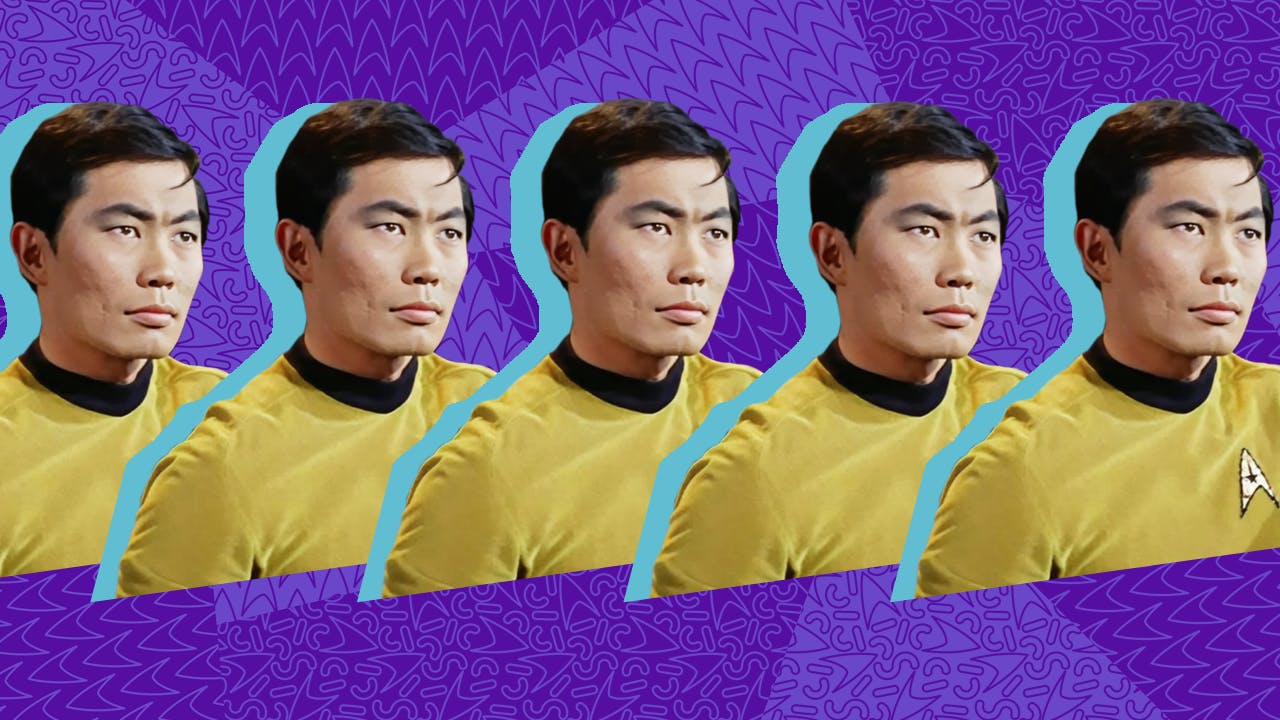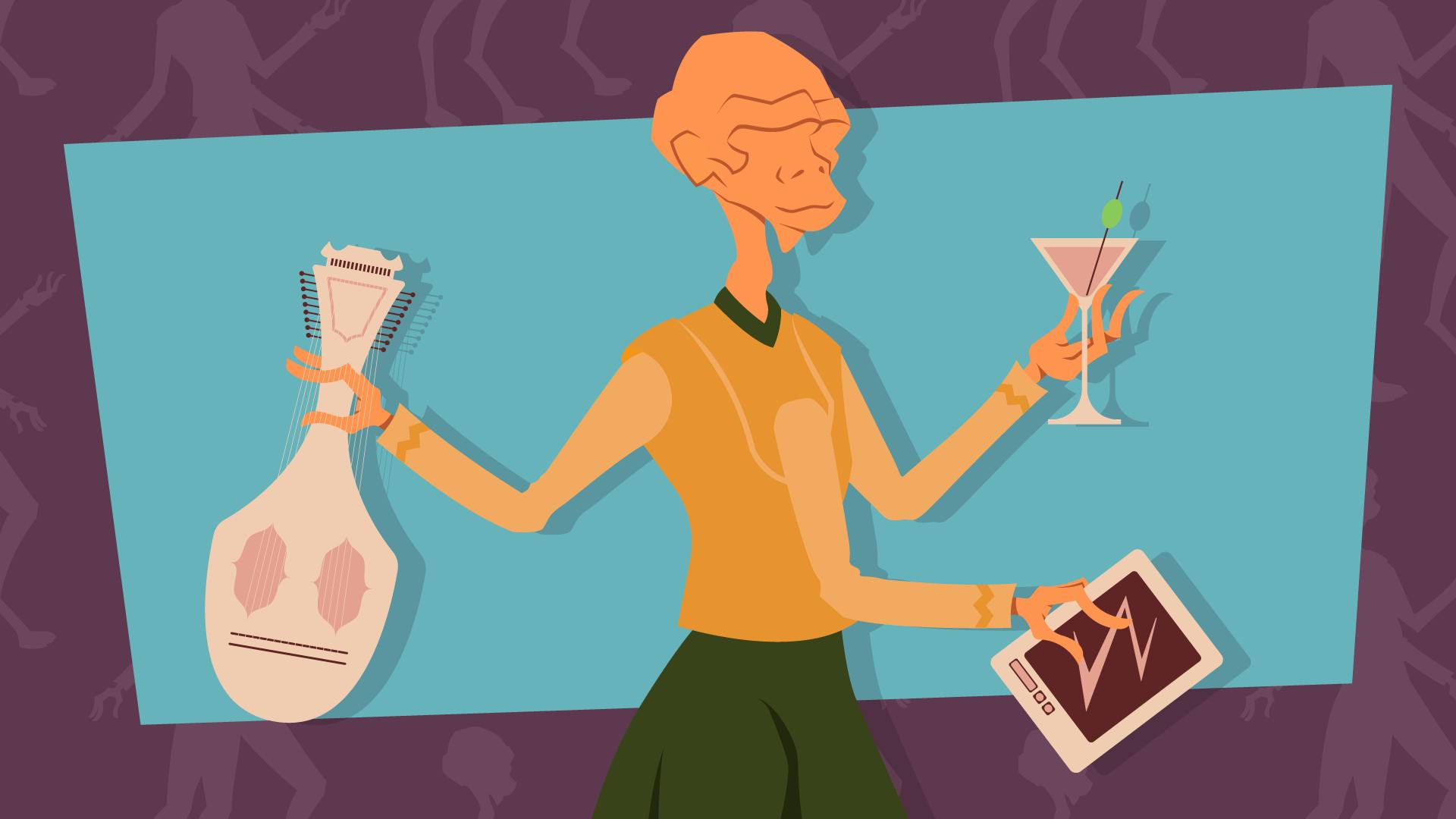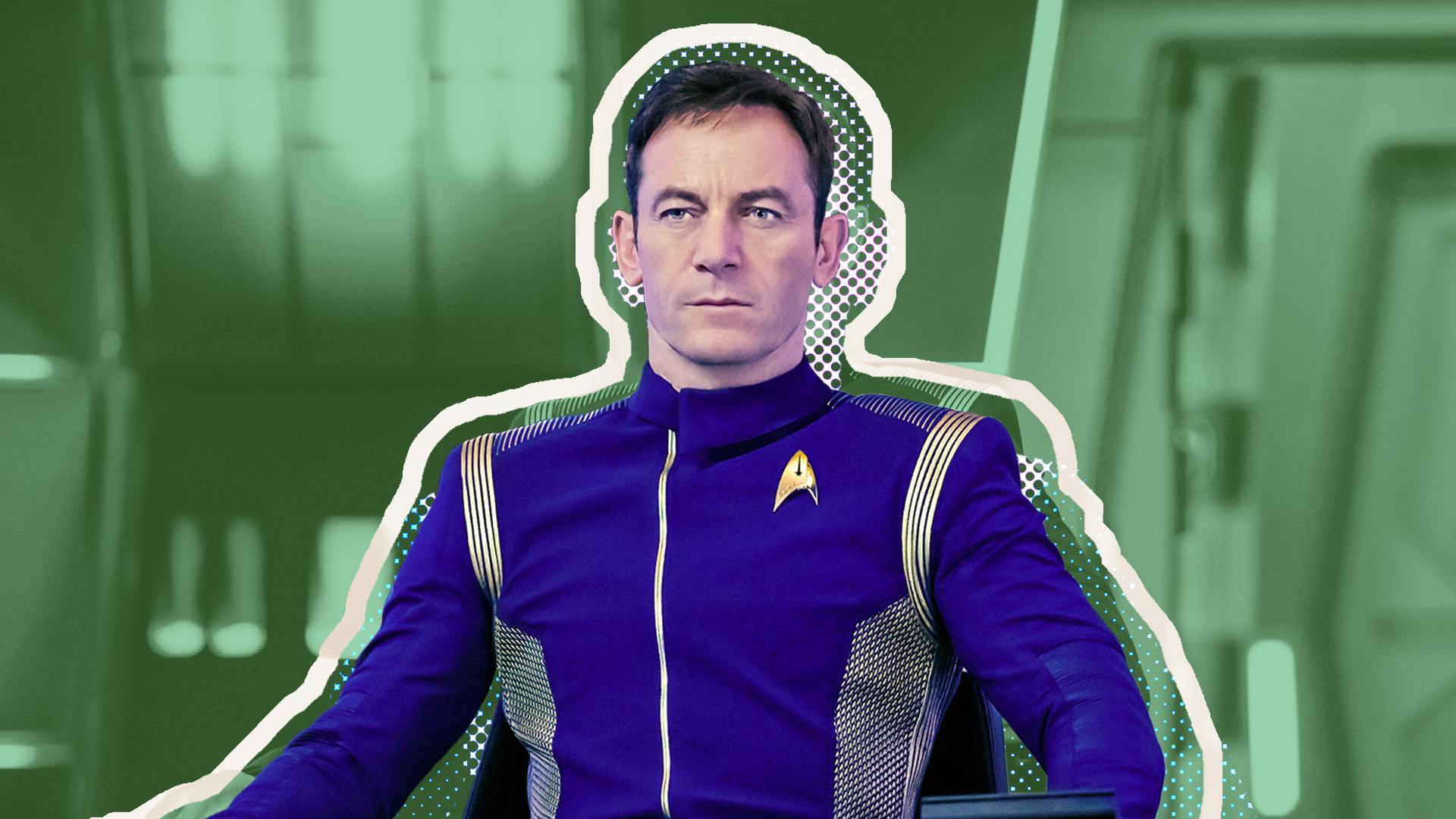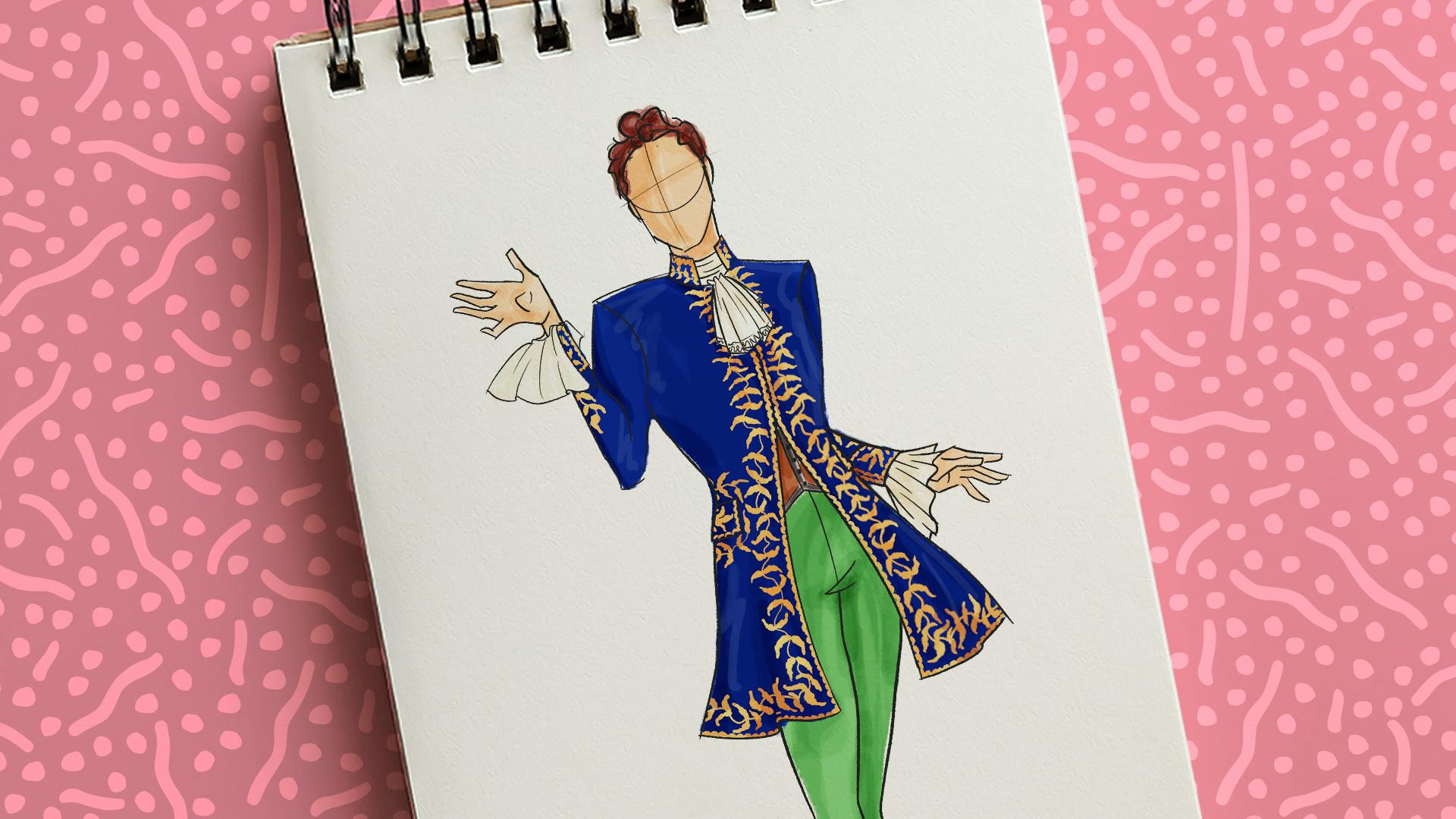Published Sep 22, 2017
INTERVIEW: Discovery Writer, Voyager Novelist Kirsten Beyer
INTERVIEW: Discovery Writer, Voyager Novelist Kirsten Beyer
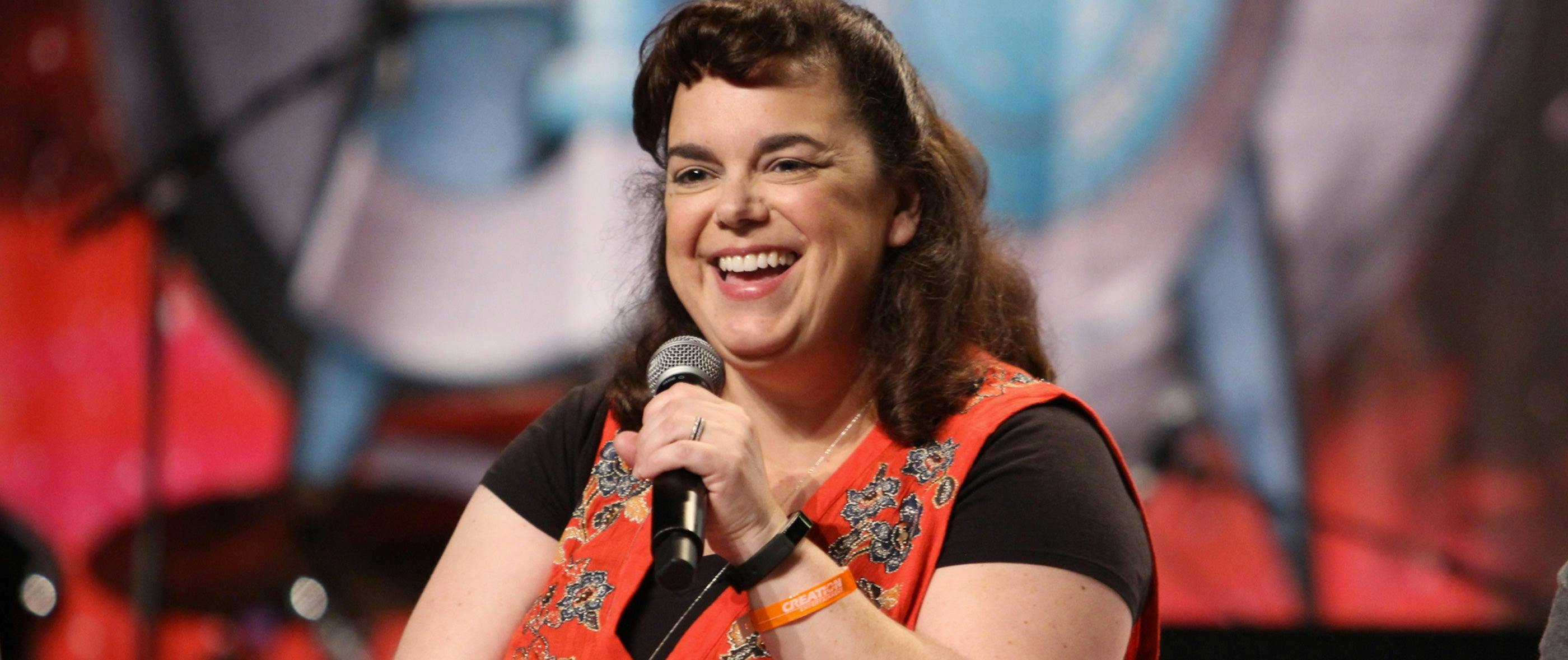
It’s been said that Star Trek is a family affair. Kirsten Beyer is proof positive of that. Beyer, best known as the long-running author of the Star Trek: Voyager novels, is now part of the Star Trek: Discovery writing team, and she was on hand at Star Trek Las Vegas last month – with her very proud husband and eight-year-old daughter in tow – when CBS All Access and StarTrek.com started to lift the veil on Discovery. Beyer, who is not only on the Discovery writing staff, but is serving as the show’s liaison to the groups working on the Discovery tie-in novels and comic books, was front and center for much of STLV. She participated in two of the four Discovery panels and also spent many hours graciously interacting with fans throughout the weekend. And, between panels, Beyer took some time to sit down with StarTrek.com to discuss her Discovery experience thus far, preview her next Voyager novel, Architects of Infinity, and muse about indoctrinating her daughter into Star Trek.
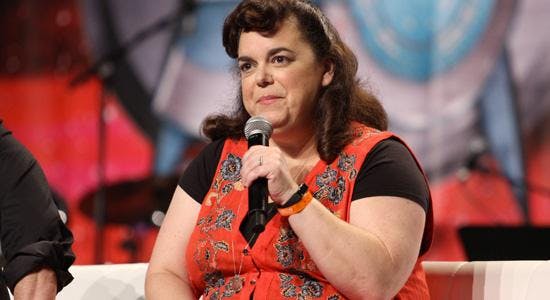
What does Star Trek mean to you?
Star Trek is the reason I wanted to be a writer, so it's hard to overstate how much this universe means to me, this mythology and the thousands and thousands of people who have created it.
How did you first hook up with, not the show, but Star Trek, as it’s almost 10 years ago now that you started with the Voyager novels?
It is almost 10 years ago. I had managed to... I reached out to the Voyager television series when they still had an open submission policy, so from that I managed to get a number of pitch meetings while that show was on the air, the first one of which was actually with Bryan Fuller. I had this wealth of material that I had developed about Voyager and Star Trek in general that I then took to Simon & Schuster and Pocket Books, and was eventually ... Just sort of one of their editors, when he finally inherited the Voyager line, reached out to me to start writing for them, initially with a short story and then a novel, and then it all just sort of spit-balled from there.
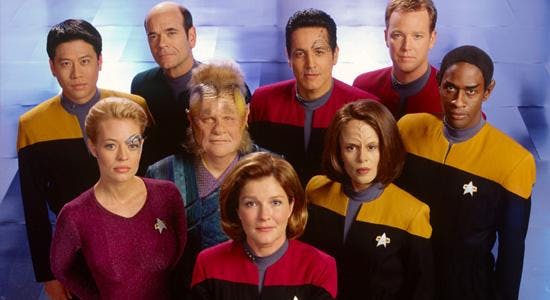
Your next Voyager book is Architects of Infinity, due out in December. What’s the basic premise?
Architects of Infinity is back to exploring and the scientific mysteries that most Starfleet officers sign up for in the first place. The one after that is To Lose the Earth. I was contracted for two at the outset of this project, and it's just taken me an incredibly long time to do them.
How different an exercise is writing for TV versus sitting at a desk and writing a book?
It's completely different. Not even just the part where beforehand you're coming up with ideas, where it was always just me and my editor, maybe. So (with the show), at first, having to share that process with nine different people broke my brain. I literally didn't understand how to follow somebody else's ideas through to a logical end and add my own to that mix. But, like anything, you do it long enough and it starts to make sense to you. Now I feel like, "Of course, TV has to be created this way." But initially I was like, "Well, who tells stories this way? Why would you ever do it this way?" It didn't make any sense.
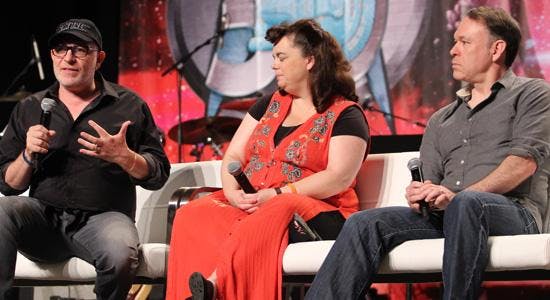
And now? How does the collaboration with Discovery’s other writers work? You drop a piece, somebody builds on it? Somebody builds a piece, you get input? Back and forth like that?
It's about versions, right? It's about recognizing that for any story you want to tell or any fraction of the story, there's 1000 versions of it, and which one resonates the most? Something that you might imagine in one way, somebody else comes at it from a completely different point of view, and suddenly it knocks your socks off. So, a lot of it is just being open to that, allowing yourself to go with what the room is doing, so that you're not holding too tight to your own stuff. You have to allow everything to just belong to everyone.
What's it been like to write something on the page and see it come to life on the stage?
I spent so much time in Toronto crying it was ridiculous, partially because our actors are breathtaking and partially because, that magic thing of now it's alive was really overwhelming the first time out, I have to say. Ted (Sullivan) was talking onstage about our Saru episode, and how Doug (Jones) would just give all of himself, and then we would just sit there and cry on each other for like 20 minutes between setups. It was my favorite thing.
You started out as an actor, right?
Yes, I actually started out in life as an actor myself. I have a Masters of Fine Arts and Acting from UCLA. That's where I met my husband. So, there's nothing mysterious to me about what they do, and yet I’m so pleased by the way our cast just does what they do. I am blown away.
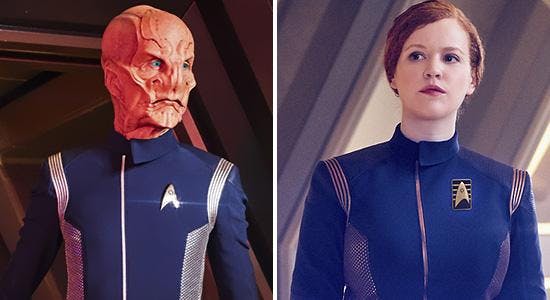
The Saru episode is your big one, but is there a particular character whose voice you hear in your head, that you're most attached to for whatever reason?
Tilly (Mary Wiseman). She is a Starfleet officer unlike anything we have seen before, partially because of her inexperience. We're building from that notion that canon tells us both Kirk and Spock served these cadet years. We don't know what they were exactly. We don't know a lot about that, but we just ... It's there in history for us. So, we've imagined Tilly actually doing the same thing on our ship. I didn't hear her voice, though, until we cast Mary, and until I started to hear Mary. The minute she opened her mouth at the first table read, I was like, "Oh, my God." She just has her own rhythms, her own sensibilities. You're never going to mistake Mary for anybody else. And for me, that marriage between those two is perfect. Any time I get to write her, I'm just tickled.
You are the liaison between Discovery as a show and the other elements, namely the novels and comic books. How is that going and what does that involve for you?
I have a lot more work to do on the show now than I did when we started, and so my time is very, very limited. In addition, once we moved into production, everybody in Toronto heard about me as the girl you could ask anything about Star Trek to, so the emails and the phone calls ... It's a great problem to have, but it's a lot. So, serving as the liaison, part of it is that I still get to work professionally with the people I was with before on the novels, and I've been brought into this whole new world of comic books, which is fabulous. But it's the thing that I usually get to at the end of the day when I am most tired, and yet it requires so much focus. To read an entire novel two or three times. To make sure that the little changes that have happened in the room are now going to reflect it. It's an ambitious project that we have taken on ourselves to try to tie this series to its tie-in properties in a way that nothing has before, and I'm very proud so far of what we have done. The amount of energy it's going to require to sustain that, I don't know, but we're going to keep trying. It's going to be the goal, but Jiminy Christmas.
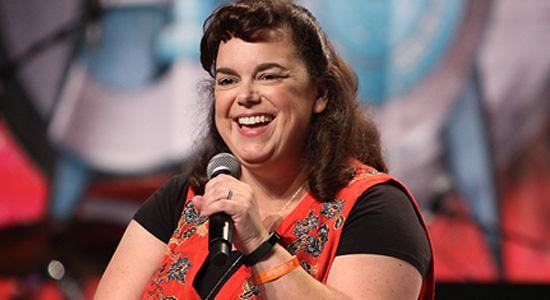
How involved were you working with Mike Johnson on the Discovery comic books?
He has taught me comics. Really, I didn't intend to be a co-author, but what happened is he and I are just great collaborators. We would sit down and just for hours talk story. This side of the story was tasked with the Klingon story. Where did this particular guy come from? So, imagining all of that, it was incredible. He is a great partner. Together, we build story. He then goes and puts it in the right format, and now that I've seen that a few times, I begin to understand, but still. We're still working on the first, and I'm watching that come to life before my eyes day by day. It's just yet another way of getting into story, which I'm much more open to now. Initially, like I said, my brain felt broken, but now it's more like, "Oh, OK, I see."
Story-wise, what excites you about the story you're telling in the comic book?
The truth about T'Kuvma. It's who he is, and where he came from, and how we got to that moment. I don't think it's anything you expect or anything you've seen before.
Your 8-year-old daughter has been here at STLV this whole time, soaking in this whole Trek experience – so excitedly -- along with you. Is there a part of you that has her in mind when you're writing Discovery, because she really is the next generation?
I've been trying to share Trek with her in bits and pieces. Some of it is a little excessive at her age, because I don't want to scare her. Although nothing scares her, which is very strange to me because I was so scared as a kid. But she ... I've been trying to give her a little bit of The Original Series. Of course, I’ve been trying to give her a little bit of Voyager, because someday I want her to read Mommy's books and know what that whole story is. But the one show that I just couldn't get as excited about was Enterprise. I've been showing her all these things. She'll watch into it for a while, whatever, and then she leaves. One night, I was watching Enterprise for work, literally, and she walks in and she's glued to the set. She's like, "Mommy, this is the best thing I've ever seen," and I'm like, "Oh, no. Honey, no. It's really actually not." This just got her rolling. So, she is very much in my mind, but I will say, I do think a lot of what we're doing thematically (on Discovery) is probably too adult at this point for her right now. I'm not going to be able to keep her from watching it for long, but there are going to have to be discussions.
